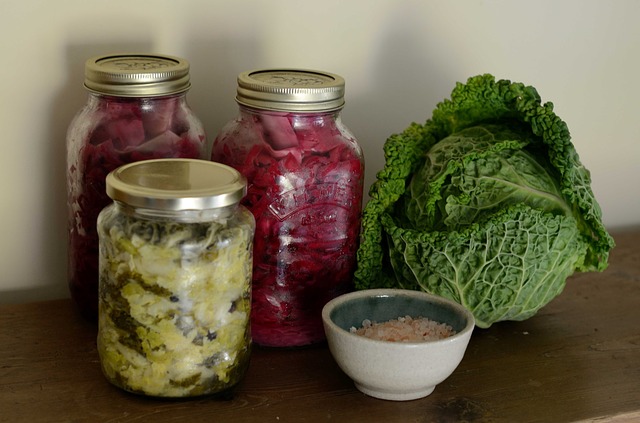 Reading Time: 7 minutes
Reading Time: 7 minutesThe human body is a complex system housing a multitude of microorganisms such as bacteria, viruses, and fungi. While we are taught to associate these bacteria, viruses, and fungi with diseases, the ones that are naturally a part of our bodies can actually help maintain a solid state of physical and mental well-being.
Most of these healthy microorganisms can be found in our digestive system, more specifically in the gut, and it was recently proven that a person’s gut health has a tremendous impact on the general well-being of the individual.
According to recent discoveries, our internal community of bacteria works as a second brain and directs what happens with our immune system, our weight-loss routine, and even our mood and mental health. Bacteria are not fully responsible for each of these systems, but the impact of an imbalanced microbiome can be major.
To make sure you understand just how much your gut matters in your everyday life, below I’ve listed the most important ways gut health impacts your well-being.
1. Maintaining a Healthy Weight
There are many people, all over the world, who make attempts to lose weight without registering the results they expect, and while this situation may be the result of several factors, gut bacteria may be one of them.
Scientists have recently discovered that, to support a healthy weight, we need to have a type of bacteria called Christensenellaceae. If this bacterium is absent or has a low count, the person is more likely to be obese, while if the numbers are high, there won’t be that many problems with weight gain.
The good news is we are all capable of producing and maintaining the bacteria. We can also support its development by sustaining a diet that’s friendly toward the gut. For instance, if we consume probiotics, cruciferous vegetables, and fibers, we are more likely to see improvements in our gut health.
2. Good Mental Health
There is a strong connection between gut bacteria and mental health, and there are many studies to support it. Furthermore, scientists can draw a direct connection between patients with psychological disorders and gut imbalance by identifying bacteria that are not common in healthy people.
While it’s not yet clear if this is a genetic predisposition or simply something caused by bad habits and diet, there are studies that show an improvement in depression and other mental health disorders when the patients consume certain probiotics.
Overall, it’s important to approach this issue while still healthy and make sure we maintain a strong intestinal flora by eating appropriate foods and being active. For this, it is important to maintain diversity in our diet and consider adding probiotics and fibers.
3. A Healthy Heart
Each year, all over the world, heart diseases are among the most common causes for an early death. The main cause stands in an unhealthy lifestyle, without movement and a fatty diet, but the gut microbiome is also an underlying cause.
The bacteria we house in the gut play an important role in creating what is known as “good cholesterol” or HDL. But, an unsuitable lifestyle and imbalance in the digestive system can lead to the production of N-oxide (TMAO), which is a chemical usually found in blocked arteries (the main cause for strokes or heart attacks).
Overall, the consumption of probiotics and reduced consumption of alcohol, fatty foods, and sugar helps support a healthy microbiome, which can also feature a functioning circulatory system.
How to Eat for Gut Health
The number-one food to consume when you are looking to improve your intestinal flora is probiotics, but these are such a large category that it’s best to go into details.
Probiotics are yeasts and live microorganisms that feed the good bacteria living in the gut. You usually find them in yogurts and fermented plant-based foods such as tempeh and miso, and they actively participate in either replenishing your flora or simply crowding out the unhealthy bacteria that produce unpleasant situations.
But you shouldn’t stop at just these foods as you can also get probiotics from:
- Kefir – This is similar to yogurt, but richer in probiotics due to the yeast content.
- Sauerkraut and kimchi – These are some of the most recommended fermented foods obtained from vegetables when it comes a diet for the gut. While they do contain probiotics, their secret comes from their organic acids, which are recommended for growing good bacteria.
- Apple cider vinegar – It can be used as salad dressing or as is, but it is beneficial for gut health and the body in general.
- Brine-cured olives – Olives are an untapped source of probiotics, but make sure you buy them from a producer that only uses organic produce.
- Kombucha – An effervescent drink made from fermenting tea.
- Salt-brine pickles – They’re not just delicious and a great way to store vegetables for winter; they’re also extremely healthy and good for your gut.
These are the most popular foods to contain probiotics, but a health specialist may know more, so we encourage you to talk to your doctor about improving your intestinal flora.
Read This Before You Go Shopping
It’s also important to understand that not all fermented foods contain probiotics. For instance, beer and wine are obtained through fermentation, but the final product doesn’t contain any live cultures.
Furthermore, according to Robert Hutkins, Professor of Food Science at the University of Nebraska-Lincoln (USA), certain methods of preparation and conservation can kill the probiotics in fermented foods. This usually happens with fermented foods that are heat-treated or canned.
So, the best way to get the health benefits offered by probiotics is to either prepare these fermented foods yourself using methods that will keep the probiotics alive or to buy them from producers known to use processing methods that will deliver the foods with live cultures (for instance, you can see a seal on some yogurt packaging that says “live and active cultures”). If you do decide to make these foods at home, make sure to get a starter culture such as whey or salt brine that will help with the fermentation process.
Foods That Aren’t Helping Your Gut Health
Finally, let’s have a look at the food habits that reduce good bacteria in the gut and may lead to imbalances in time. Thus, you should avoid:
- Sugary foods and drinks – According to research, sugar is one of the main offenders when it comes to gut imbalance. Any form of sugar excess (not just refined sugar) can wreak havoc in the microbiome because it feeds the bad bacteria and can lead to yeast overgrowth.
- Fast foods – Rich in animal saturated fats and proteins and low on fibers, fast-foods consumed as a steady diet will throw the microbiome off balance.
- Processed foods – The type of food you can get in a bag, ready to eat, is typically high in salt, sugar, oils, additives, and all sorts of harmful chemicals. When treated as a steady diet, these foods can cause a cascade of problems, and they can also trigger insulin resistance, which is the main cause of conditions such as diabetes or obesity.
- Alcohol – It is no secret that overconsumption of alcohol damages the liver and has other bad effects on the body, but it is also proven that it can lead to bacterial overgrowth and a decrease in good bacteria in the gut.
- Antibiotics – While antibiotics have saved millions of lives since their discovery, they also have a destructive nature as they kill both good and bad bacteria. With proper care and treatment, most of the negative effects can be temporary, but there are some long-term effects we must also consider.
- Dairy – Products like cheese, milk, butter, and so on can be harmful to your gut health if your digestive system is sensitive or you have lactose intolerance.
- Red meat as a steady diet – It’s okay to eat red meat in moderation, but when it is consumed heavily, the carnitine in red meat can be metabolized in TMAO, which is a compound linked to heart attacks and strokes. According to a study performed by the Cleveland Clinic, the TMAO is formed due to an imbalance in the gut.
In Conclusion
The gut microbiome is a complex ecosystem and we’re just starting to decipher its secrets. However, the science shows that our lives and general state of well-being are strongly influenced by the bacteria living there.
The good news is these bacteria are not too picky and as long as you understand the importance of eating right and being active, you will be able to feel good and be healthy for a long time.












